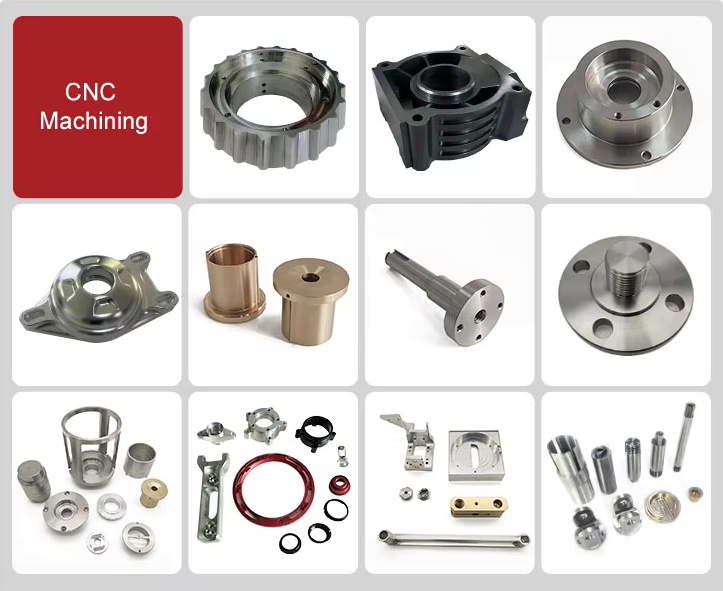Metal Bending
2 year agoWhen it comes to creating precise and durable metal components, the process of bending metal for mechanical products plays a crucial role in modern manufacturing. Whether you're working on structural elements or intricate mechanical systems, the ability to shape metal accurately is essential. This product focuses on the technique of metal bending with CNC machines, offering a reliable solution for producing high-quality bent metal parts that meet strict engineering standards. The integration of advanced technology ensures precision, efficiency, and consistency in every bend, making it an ideal choice for industries that demand accuracy and durability.
The key features of this metal bending service include the use of state-of-the-art CNC machinery, which allows for complex bends with minimal material waste. The process is designed to handle a wide range of metals, including steel, aluminum, and stainless steel, ensuring versatility across various applications. Each component is crafted with attention to detail, maintaining tight tolerances and smooth finishes. Additionally, the system supports both simple and multi-angle bends, making it suitable for a broad spectrum of industrial needs. The combination of automation and expert craftsmanship results in a product that is not only strong but also aesthetically pleasing and functionally superior.


At the heart of this metal-bending fabrication process is the application of computer numerical control (CNC) technology, which revolutionizes how metal is shaped. Unlike traditional manual methods, CNC machines offer greater control over the bending angle, pressure, and speed, leading to more consistent and repeatable results. This level of precision is particularly important when working on mechanical components, where even the smallest deviation can affect performance. By leveraging the power of CNC machines, manufacturers can achieve higher production rates without compromising on quality. The software used in these systems is designed to simulate the bending process, allowing engineers to visualize the final product before any material is cut or formed.
This metal bending service is widely used in the production of structural components, such as frames, brackets, and support beams, which are essential in construction, automotive, and aerospace industries. It is also commonly employed in the creation of mechanical parts that require precise curvature, such as gears, levers, and shafts. The flexibility of the process makes it suitable for both small-scale prototyping and large-volume production runs. Furthermore, the ability to customize the bending parameters ensures that each part meets specific design requirements, whether they are for functional or aesthetic purposes.
Users who have utilized this metal-bending service often highlight its reliability and the quality of the finished products. Many appreciate the seamless integration of technology with traditional metalworking techniques, resulting in components that are both strong and precise. The ability to produce custom bends quickly and efficiently has made this service a preferred choice for engineers and designers looking to streamline their manufacturing processes. Additionally, the reduction in material waste and the improvement in overall efficiency contribute to cost savings and environmental sustainability.
One of the most common questions regarding metal bending for mechanical products is about the types of materials that can be used. The answer is that a wide variety of metals can be processed, including carbon steel, alloy steel, stainless steel, aluminum, and copper. Each material has different properties that affect how it responds to bending, and the CNC machine is programmed accordingly to ensure optimal results. Another frequently asked question is about the maximum thickness of metal that can be bent. This depends on the specific machine being used, but many modern CNC systems are capable of handling materials up to several millimeters thick, depending on the required bend radius and angle.
For those interested in using metal bending with CNC machines, it's important to understand the advantages this method offers. Unlike manual bending, which relies heavily on the skill of the operator, CNC bending provides a standardized approach that minimizes human error. This leads to more accurate and uniform results, especially when dealing with complex designs. Additionally, the automation involved reduces the need for manual labor, increasing productivity and reducing the time required to complete a project. The use of digital controls also allows for easy adjustments and modifications, making it easier to adapt to changing design specifications.
In summary, this metal-bending fabrication service is an essential tool for anyone involved in the production of mechanical and structural components. By utilizing advanced CNC technology, it ensures that every bend is precise, efficient, and tailored to the specific needs of the project. Whether you're working on a single prototype or a large-scale manufacturing run, this service provides the quality and reliability needed to meet industry standards. With its focus on innovation, accuracy, and customization, it continues to be a valuable asset in the world of metalworking and engineering.
Similar Video Recommendation
If you are interested in the product, contact Bossgoovideo.com for more information
- *To:
- Dongguan Shangen Precision Metal Plate Co., Ltd.
- *Message:
-
Submit
Main Product:
Sheet Metal Fabrication ,
Fabrication Services,
Sheet Metal Bracket,
Hardware tools,
CNC Machining Parts,
Sheet metal box case









